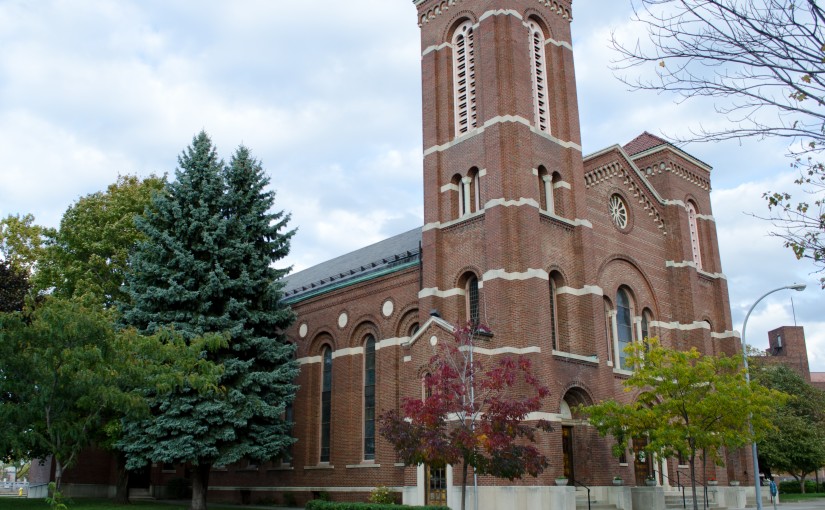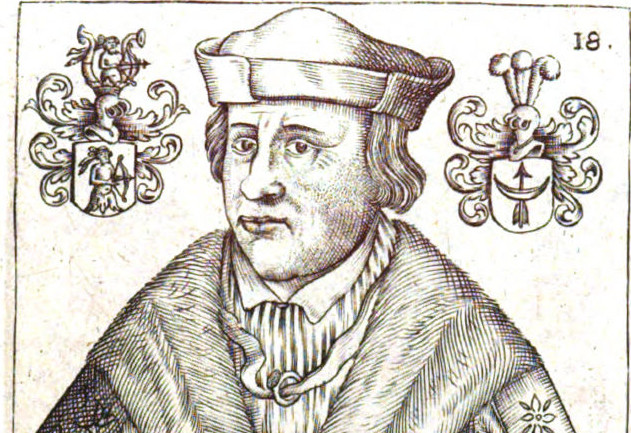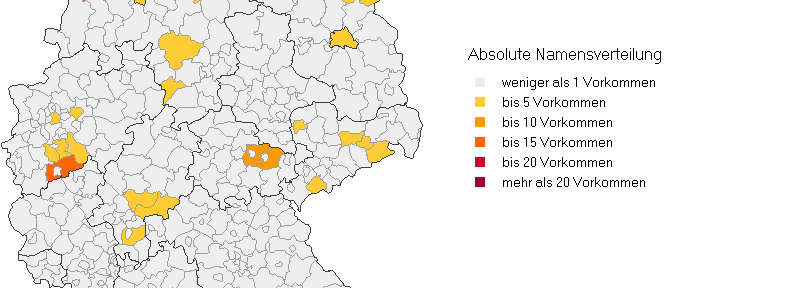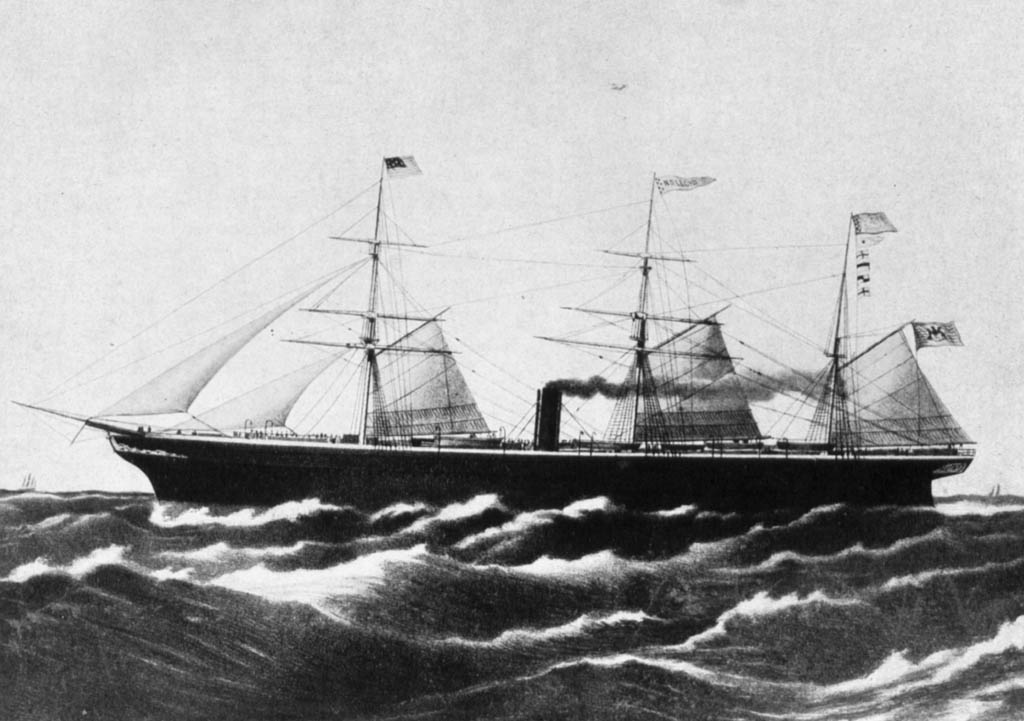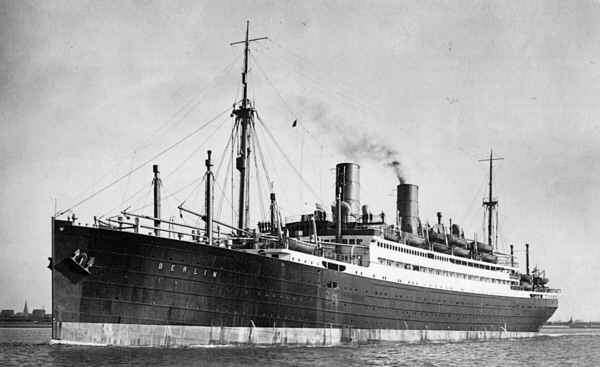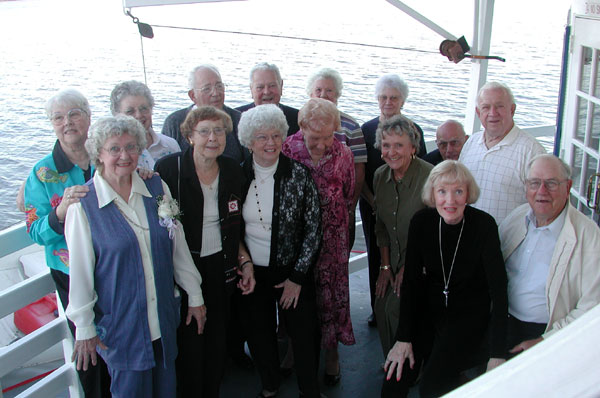It was probably in the year 1995 when I started to play around with genealogy, trying out the first basic software at that time. Over the years I have gathered a great amount of information, mainly data of deceased people who were somehow connected to different Kettwig families. Truth is that I have not done anything genealogy related in many years and I am aware of the fact that some information on my digital family tree is not as well researched as I would like it to be and in some cases even contains false family connections. I can’t say what the future might bring, but I don’t really see myself spending much of my free time online anymore. I much rather engage in outdoor sports such as rock climbing, hiking, skitouring, snowshoeing, etc. In other words, this Kettwig family history (website) is history now.
Continue reading Kettwig Family HistoryThe Ministry of Flowers
Part of the history of Salem Evangelical Church (Rochester, New York):
The beautiful custom of placing flowers on the altar every Sunday began November 26, 1911. The first flowers were given by Mrs. Minnie Nelson Gerhard, Miss Amelia Kall, and Miss Lena Kettwig. Immediately thereafter Mrs. J. George Kaelber spoke to Miss Kettwig and suggested that flowers be placed on the altar every Sunday. Mrs. Kaelber offered them for the following Sunday, and the donors on the remaining Sundays of the month were: Mrs. Julius C. Hoffman, Mrs. Katharine Loeffler, Miss Emma Hess, and Mrs. Mary Milow. Since that time there has not been a Sunday without flowers on the altar. After accomplishing their purpose in church on Sunday, these flowers have been sent with messages of comfort and cheer to many hundreds of sick, shut-ins and afflicted in homes and hospitals.
Der Kanzler Dr. Wolfgang Kettwig
Der folgende Bericht wurde verfasst von Georg Christian Friedrich Lisch und erschien in Verein für Mecklenburgische Geschichte und Altertumskunde: Jahrbücher des Vereins für Mecklenburgische Geschichte und Altertumskunde. – Bd. 26 (1861), S. 11-16. Die Textvorlage stammt aus der Landesbibliothek Mecklenburg-Vorpommern .
Die Canzler in dem güstrowschen Landestheile lassen sich nach der im J. 1520 vorgenommenen Landestheilung erst seit dem Anfange des J. 1526 verfolgen. Der erste güstrowsche Canzler war Dr. Wolfgang Ketwig, welcher am 6. Januar 1526 als Canzler angestellt sein wird, da die Markgrafen von Brandenburg späterhin sagen, daß seine Bestallung mit dem Tage der Heil. Drei Könige 1530 ablaufe und er nach andern Nachrichten auf 4 Jahre berufen war. Continue reading Der Kanzler Dr. Wolfgang Kettwig
Our name
The name Kettwig and Kettwich is rather rare in the German speaking countries. In Austria there are only two known families (my parents and I). In Germany there are more instances found, according to the telephone directory of the year 2002 (will not be updated due to a decreasing number of fixed line phones) about 123 entries in 37 distinct counties. Projected to the total population in Germany there might be approximately 328 people with that name. The following maps were created with the help of Geogen . More details, such as a map with names of all counties and regions, can be found there as well. Continue reading Our name
Ernst Kettwig (1868 trip to the USA)
On March 5, 1868 a 37-year old mechanic from Germany, Ernst Kettwig, crossed the Atlantik on the steamship “Bremen” from Bremen to New York. He wanted to settle in the USA.
The BREMEN. Source: Georg Otto Adolf Bessell, 1857-1957, Norddeutscher Lloyd; Geschichte einer bremischen Reederei (Bremen: C. Schünemann [1957]), p. 11.
Source:
http://www.geocities.com/mppraetorius/com-br.htm#bremen1858
http://immigrantships.net/v6/1800v6/bremen18680305.html
Harm and Gesine Kettwich (travelling 1924 and 1928)
Harm and his brother Heere crossed the Atlantic Ocean for the first time in September 1924 on the steamer “Stuttgart” from Bremen to New York. Both were single and wanted to join their cousin Frank E. Kettwich in Titonka, Iowa. It seems that Harm later returned to Ostfriesland, Germany to marry. Continue reading Harm and Gesine Kettwich (travelling 1924 and 1928)
Minonk Class of 1943 60th Reunion, Friday, September 19, 2003
The Minonk High School class of 1943 held their class reunion aboard the “Spirit of Peoria River Boat” September 19, 2003. Below is a class picture taken aboard the boat.
Continue reading Minonk Class of 1943 60th Reunion, Friday, September 19, 2003
Conflanser 1761
Bei diesem Text handelt es sich um einen gekürzten Auszug aus dem Buch “Aurich – von C.B. Meyer bis auf unsere Tage. Erstes Buch.” von Gramberg, Kalli (1992), Stadt Aurich, Druckerei Soltau-Kurier-Norden. S. 9.
Im „Siebenjährigen Krieg” (1756 bis 1763), den König FRIEDRICH II. in Sachsen, Böhmen und Schlesien führt, sind seine westlichen Provinzen ohne Schutz, was die Österreicher, aber vor allem die Franzosen zum Vorrücken bis nach Ostfriesland veranlaßt, um preußisches Eigentum in Besitz zu nehmen und Kriegskontributionen, das heißt Gelder, einzutreiben. Continue reading Conflanser 1761
Predigerdienst in Barstede bis 1931
Zusammengestellt von Hinrich Schoolmann. (Dieser Text ist einem Zeitungsartikel entnommen, der mir nur als Kopie vorliegt. Ich habe keine Ahnung wann und in welcher Zeitung er erschienen ist.)
Barstede. Der Ort begegnet uns um 1408 als Barstede (Friedländers Urkundenbuch I 214) und im Stader Copiar um 1420 als Kerstede, hier dürfte jedoch ein Druck- oder Schreibfehler die Verstümmelung des Namens verursacht haben. Was im übrigen über den Ort und über die Kirche im allgemeinen bekannt ist, hat Bernhard Uphoff in seiner Ortskunde gesagt. Continue reading Predigerdienst in Barstede bis 1931
Spielfilm über die Kettwig Werke
 Durch Zufall bin ich im Internet auf einen deutschen Spielfilm aus dem Jahre 1940 gestoßen, der in den Kettwig-Werken nahe der französischen Grenze spielt. Es handelt sich natürlich um einen Propagandafilm, ist aber für die Familiengeschichte sicher interessant. Continue reading Spielfilm über die Kettwig Werke
Durch Zufall bin ich im Internet auf einen deutschen Spielfilm aus dem Jahre 1940 gestoßen, der in den Kettwig-Werken nahe der französischen Grenze spielt. Es handelt sich natürlich um einen Propagandafilm, ist aber für die Familiengeschichte sicher interessant. Continue reading Spielfilm über die Kettwig Werke
